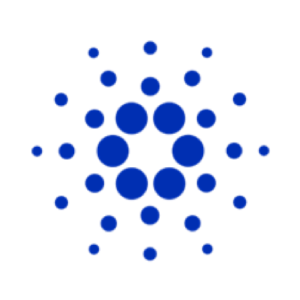 Cardano
Cardano
What is Cardano?
Cardano is a decentralised Layer 1 blockchain platform built to deliver security, scalability, and long-term sustainability for decentralised applications. At its core, Cardano separates the transfer of value from the execution of application logic through a layered architecture:
-
The Cardano Settlement Layer (CSL) is responsible for managing transactions and ledger balances.
-
The Cardano Computation Layer (CCL) supports smart contract functionality and decentralised app logic.
Developed through peer-reviewed academic research and formal methods, Cardano aims to offer a high-assurance infrastructure for global-scale systems. Its consensus mechanism, Ouroboros, is a proof-of-stake protocol designed for efficiency and provable security. On-chain application development is enabled through two native smart contract frameworks—Plutus, which is designed for developers, and Marlowe, which is tailored to financial use cases and business users.
Cardano’s roadmap is divided into five distinct development eras—Byron, Shelley, Goguen, Basho, and Voltaire—each focused on introducing foundational elements such as decentralisation, smart contracts, scalability, and governance.
What is ADA used for?
ADA is the native utility token of the Cardano network. It plays a central role in enabling and securing activity across the platform:
-
Transaction Processing: ADA is used to pay fees for transferring assets and executing smart contracts.
-
Staking and Delegation: Token holders can delegate their ADA to stake pools or operate one themselves, earning rewards for helping maintain network security via the Ouroboros protocol.
-
Governance Participation: ADA holders are able to vote on improvement proposals and funding requests through Cardano’s governance system, which will be fully implemented in the upcoming Voltaire era.
-
dApp Access: ADA is also required for interacting with decentralised applications built on Cardano’s computational layer.
What is Ouroboros?
Ouroboros is Cardano’s proof-of-stake consensus protocol. It is designed to ensure security, decentralisation, and energy efficiency without the high computational costs of proof-of-work systems.
The protocol divides time into epochs and slots, with randomly selected leaders assigned to produce blocks. Validators are selected in proportion to their delegated stake, and rewards are distributed to both pool operators and their delegators based on performance.
Ouroboros has multiple variants—such as Praos and Genesis—that extend its capabilities in areas like network resilience, secure bootstrapping, and stakeholder privacy. Its modular design supports protocol upgrades without undermining consensus integrity.
What are Plutus and Marlowe?
Cardano’s smart contract functionality is implemented through two purpose-built frameworks:
-
Plutus is a high-assurance smart contract language based on Haskell. It allows developers to write on-chain and off-chain code in a unified environment, supporting rigorous testing and formal verification.
-
Marlowe is a domain-specific language designed for creating financial contracts. It enables business users to model and execute agreements through visual tools, with built-in safeguards to reduce error and misbehaviour.
Both are built to integrate seamlessly with the Cardano Computation Layer, supporting application development in sectors like decentralised finance, insurance, and identity.
Who Created Cardano?
Cardano was launched in September 2017 by Ethereum co-founder Charles Hoskinson and Jeremy Wood, initially without smart contract support, which was later implemented through the Alonzo hard fork. The Ouroboros consensus mechanism, based on peer-reviewed research from various institutions, including the University of Edinburgh and Tokyo University, is a fundamental part of the network. Cardano is now maintained by three organizations: the Cardano Foundation, Input Output Global, and Emurgo, along with its community. The development progresses through eras named after notable figures, with the current era, Basho, focusing on scalability and network optimization, and the final era, Voltaire, planned to introduce voting and treasury management.